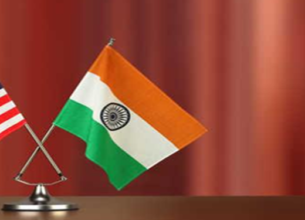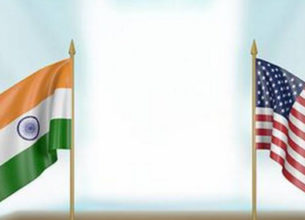ANNUAL SPECIAL 301 REPORT
01, May 2020

Prelims level : International Policies & Schemes
Mains level : GS-II Effect of Policies and Politics of Developed and Developing Countries on India’s Interests, Indian Diaspora.
Why in News?
- The United States Trade Representative (USTR) has released its Annual Special 301 Report.
What is Special 301 Report?
- It is prepared annually by the Office of the United States Trade Representative (USTR) that identifies trade barriers to United States companies and products due to the intellectual property laws, such as copyright, patents and trademarks, in other countries.
- It is published pursuant to Section 301 of the Trade Act of 1974.
- The Report includes a list of “Priority Foreign Countries”, that are judged to have inadequate intellectual property laws; these countries may be subject to sanctions.
- In addition, the report contains a “Priority Watch List” and a “Watch List”, containing countries whose intellectual property regimes are deemed of concern.
Report with Respect to India:
- India continues to be on the ‘Priority Watch List’ for lack of adequate intellectual property (IP) rights protection and enforcement.
- While India made “Meaningful Progress” to enhance IP protection and enforcement in some areas over the past year, it did not resolve recent and long-standing challenges, and created new ones. The same assessment was made in the 2019 Report.
What are the Unresolved Issues as per the Report?
- Innovators being able to receive, maintain and enforce patents particularly in the pharmaceutical sector.
- Concerns over copyright laws not Incentivising the creation and Commercialisation of content.
- An outdated trade secrets framework.
- Restrictions on transparency of information provided on state-issued pharmaceutical manufacturing licenses
- Restrictive patentability criteria to reject pharmaceutical patents.
- Absence of an effective system for protecting against the unfair commercial use.
- High customs duties on medical devices and Information and Communications Technology.
- Weak enforcement by courts and the police, and Lack of familiarity with investigative techniques and no centralised IP enforcement agency.
- India was ranked among the top five source economies for fake goods by the Organization of Economic Development and Cooperation (OECD) in 2019.
- Trademark counterfeiting levels were “problematic” and there were “excessive delays” in obtaining trademarks due to a lack of examination quality.
- The government’s 2019 draft Copyright Amendment Rules, if implemented, would have “severe” consequences for Internet-content rights holders, as the proposed rules broadened the scope of compulsory licensing from radio and television broadcasting to online broadcasting.
Demands by the USTR:
- It has urged India to join the Singapore Treaty on the Law of Trademarks, a treaty that harmonises trademark registration.
- The treaty was adopted in Singapore on 28 March 2006. It entered into force on 16 March 2009.
- As of July 2016, there are 50 contracting parties to the treaty, which includes 48 states plus the African Intellectual Property Organization and the Benelux Organization for Intellectual Property.
- It includes provisions on the recording of trademark licenses, and establishes maximum requirements for requests for recordal, amendment or cancellation of the recordal of a license etc.
- The Treaty is open to States members of WIPO and to certain intergovernmental organizations.








